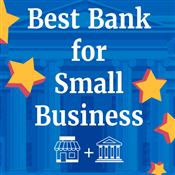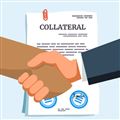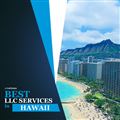Business Loan Requirements
Ready to apply for extra cash? Let's talk about the business loan requirements you can expect from lenders.
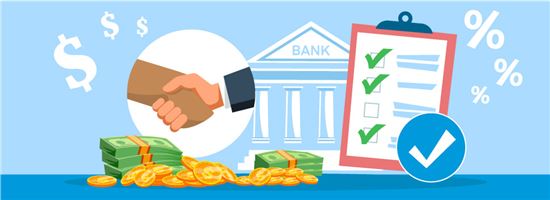 |
Applying for a small business loan isn't easy.
Lenders take risks seriously, so you can expect them to be stringent with their requirements. And as a small business owner, getting denied—especially for more than one loan—can get frustrating. It can also be time-consuming, so it's best to prepare beforehand.
Here's what you need to know about typical business loan requirements.
Small Business Loan Requirements
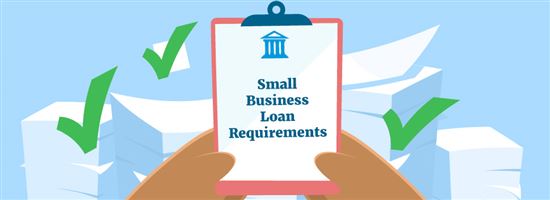 |
Typically, you need a good credit score, ample cash flow, and two years in business to get approved for a small business loan. But requirements will vary from lender to lender.
Lenders will likely look at your:
- Personal and business credit scores
- Cash flow and revenue
- Amount of debt
- Collateral and personal guarantee
- Years in business
- Business industry
- Business plan
Let's discuss these requirements in more detail.
Personal and Business Credit Scores
Lenders will almost always check your credit scores. Very few of them don't consider creditworthiness.
The minimum will depend on the lender. But according to major credit bureaus, a good personal credit score is at least 670. Good business credit scores are 80 and up.
Traditional lenders are typically demanding with these numbers. But online lenders may be more lenient. Fundbox and OnDeck, for example, only require a personal credit score of 600.
They use these scores to determine how well you manage your personal and business debt.
If you're a new business owner who hasn't built up much business credit, your personal credit score will likely be used for loan approval.
Cash Flow and Revenue
As the name suggests, cash flow is the amount of cash flowing into and out of your business. On the other hand, revenue refers to your income from daily business operations.
- Cash flow. Your cash flow must always be a positive number. Otherwise, you won't have enough money to operate.
- Monthly or annual revenue. This varies by lender and type of loan. Some may require at least $10,000 per month, while others could ask for $30,000 or higher.
Lenders for asset-based loans will likely care more about the value of the asset more than your cash flow and revenue. It's a more accessible option if you're low on either cash flow or revenue.
For example, if you're getting an equipment loan, lenders will consider the value, depreciation or appreciation rate, and liquidity of the equipment. This is because the equipment can become the collateral for the loan.
The lender can regain most (if not all) of its losses by selling the equipment should your business default. Keep in mind that not all assets qualify for the loan.
Amount of Debt
There are two measures lenders use to assess your business debt. This is through your debt-to-income ratio (DTI) and debt-service coverage ratio (DSCR).
The debt-to-income ratio shows how much of your monthly earnings are used to repay debt. It's expressed as a percentage. The lower the DTI, the better because it means you have more free cash to pay for new loans.
It's best to aim for a DTI of 36%, but some lenders can go for up to 45%.
Let's say you have a gross monthly profit of $10,000, and $2,000 of it is used to repay debt.
DTI ratio = $2,000 / $10,000 x 100 = 20%
This means that 20% of your gross monthly income goes to debt repayment.
The debt-service coverage ratio also measures your available cash flow to pay for your ongoing debts. Unlike DTI, this isn't expressed in a percentage but in decimals.
SBA lenders typically require a DSCR of 1.25x or more, used for commercial real estate loans.
For example, if you have $500,000 of net operating income (NOI) and $300,000 of annual debt service,
DSCR = $500,000 / $300,000 = 1.66x
In this example, your DSCR is ideal for most SBA 7(a) lenders.
Collateral and Personal Guarantee
Lending to small businesses is usually risky for lenders.
Established business owners who are veterans in the field are not likely to fail. It's not the same for small businesses and new business owners.
To lessen this risk, lenders may ask for collateral or a personal guarantee.
- Collateral. Collateral refers to asset/s that back up your loan for when your business defaults. The lender will seize the collateral and sell it to repay the loan.
For this reason, some collaterals are more favored due to their liquidity. Cash is best for lenders as collateral. Or it can be tangible assets like inventory, equipment, and real estate.
Lenders may also verify the value of your assets through appraisal.
- Personal guarantee. A personal guarantee is when the business owner pledges to repay the loan through their personal assets if the business defaults.
Collateral is likely a requirement for secured loans. Some lenders will require a personal guarantee alongside it. But, personal guarantees are more common for unsecured loans.
The number of assets needed will depend on various factors, such as your credit scores, type of loan, and the value and nature of your collateral.
Years in Business
Typically, lenders require you have at least two years of being in business before you can get a loan. Some online lenders may be more lenient and require just six months or more.
The longer you have been in business, the greater your chances of getting approved.
According to the Bureau of Labor Statistics (BLS), approximately 20% of businesses fail within the first year.[1] This is why lenders want to work with companies that have proven they can last for more than a year.
Business Industry
Some industries are riskier than others. Your business may be considered high risk if it has a higher chance of failing. If so, it can be more challenging to get approved for a loan.
This could be due to:
- Being subject to frequent regulation changes
- Revenue that isn't always guaranteed
- Changes in technology
- Morally questionable services
The alcohol and gambling industries are examples of those subject to frequent regulation changes.
Retail and restaurants, on the other hand, can't always guarantee revenue. It's the same for seasonal businesses.
Newspapers, booksellers, and postal services are examples of businesses threatened by technological changes.
Lastly, adult entertainment, cannabis, and mining may belong to socially unaccepted businesses.
Business Plan
Your business plan will state how the funds will be used and your plan for repayment. Lenders will want to know how your business could be successful and sustainable.
There's no one way to write a business plan as long as it communicates your business needs well.
Some critical sections to keep in mind are:
- Financial analysis. It's best to include your past revenue alongside your projections for the next three to five years. It lets lenders know you're profitable. You could attach income and cash flow statements, capital expenditure budgets, balance sheets, and profit and loss statements.
- Market analysis. By having a competitive market analysis, you get to show lenders that you know your industry and your target market and have a suitable marketing strategy for them.
- Product or service. Your products and services, business model, and pricing structure will ultimately let the lenders know what your business is about. You can discuss how your business fulfills your customers' needs in detail.
- Organization and management. This includes organizational charts, structure descriptions, and salary forecasts. Lenders may also ask for management positions and their responsibilities and qualifications, which could be in the form of a resume.
A business plan can be comprehensive or summarized with key elements only. Generally, lenders request a comprehensive traditional business plan (usually dozens of pages long).
But you can still opt for a lean startup business plan. It summarizes the essential points on one page. You can expect that lenders might ask for more information.
Are You Eligible for a Small Business Loan?
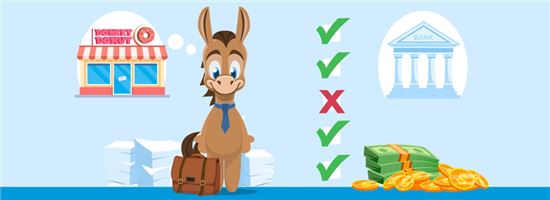 |
The best way to be eligible for a small business loan is to meet the lender's qualifications. These vary from lender to lender, so it helps to know the required information beforehand.
Here's a checklist to help you prepare. You can always compare the requirements if you have a lender in mind by checking their website.
Checklist of Requirements for a Business Loan
General Requirements
- Credit score. Typically, lenders want to see a personal credit score of 670 and a business credit score of 80. But some lenders may be more lenient.
- Collateral or personal guarantee. Reflect and note the assets you could use for the loan. Be sure to only include those you can afford to lose.
- Time in business. Lenders often require at least two years of being in business. But some provide loans with just six months of business operations.
- Debt-to-income ratio (DTI). An excellent DTI is 36%, but acceptable DTIs to lenders can be up to 45%. You can calculate yours beforehand.
- Debt-to-service ratio (DSCR). With DSCR, the higher the number, the better. The minimum you'll need to aim for is 1.25. Similar to DTI, you can calculate this ratio beforehand.
Business Plan
- Cash flow statement. It's the financial statement showing your cash flow. Cash flow should always be positive.
- Income statement. It's the financial statement for your revenue. This should always be greater than your expenses. You should have at least $10,000 to $30,000 monthly income.
- Balance sheets. Include balance sheets for the last three years and a detailed debt schedule.
- Profit and loss statements. Include the P&L statement for the last three years.
- Tax returns. Your personal and business tax returns for the last two to three years may be needed.
- Projected financial statements. Include projections for the next three to five years.
- Personal financial statements. Similar to why lenders ask for your personal credit score, your personal financial statements will help them understand how you manage your expenses. Include personal financial statements for the two most recent years.
Legal Contracts and Licenses
- Business certificate. Your registration and licenses are needed as proof of your business. If you're a corporation, some lenders may require a stamp of your corporate seal.
- Identifications. Lenders will also need your employer identification number (EIN) and Social Security number (SSN).
- Business lease. Some lenders ask for a copy of your lease or a note from your landlord regarding lease terms.
- Disclosures. You'll want to disclose any other ownership and affiliations. Other partners must also sign documents regarding the business loan you apply for.
Can I Get a Business Loan with No Business?
Let's say you want to start a business and plan to get a loan for it. Can you apply without anything to show?
It's not easy, but there are microlenders willing to help people start businesses. You'll need a well-thought-out business plan and an excellent financial forecast.
Because you have no past to show, you will have to convince lenders your business idea is viable and sustainable.
How to Apply for a Business Loan
Now that you know the requirements, the next step is to start applying.
- Calculate the loan amount you need. Different types of small business loans also offer varying loan amounts. You'll want to calculate how much you need to avoid borrowing too much and repaying too much - with interest.
A business loan calculator can help you with this.
- Decide on the type of loan and repayment method you prefer. Some business loans may be more suitable than others. For example, a business line of credit may be best for flexibility, while microloans are best for starting a business.
The type of loan will also dictate if you repay in installments, through a line of credit, or a percent of your daily cash flow.
- Find a suitable lender. The Small Business Administration (SBA) and Lendio work with various lenders that can help with your business needs. Just be sure to find one where you already qualify based on numbers.
- Prepare the required documents. An application can take just a few minutes with online lenders. But if you apply to traditional banks, it can take longer than usual if you don't have the documents upfront.
- Discuss further details with your chosen lender. If you've been pre-approved, there will be an in-depth qualification process after. You can discuss rates with your lender and communicate other information regarding your business needs.
- Sign the contract and receive your funding. Some lenders can give you fast cash within minutes. But more traditional institutions, such as banks, can take months before you get your money in hand.
FAQs
What is usually required for a business loan?
Lenders will typically ask for your credit scores, cash flow, collateral, and years in business. A personal credit score of 670 and a business credit score of 80 are considered good.
You also need to be in business for six months to two years minimum. Lastly, you need ample cash flow and enough assets for collateral.
What proof do you need for a business loan?
You must submit your personal and business financial statements, licenses and certificates, lease, and any disclosure involving third-party partners or affiliations. Lenders will also ask for your EIN and SSN.
What size loan can I get to start a business?
It depends on your business needs. The average microloan from the SBA is $13,000. But you can get them for up to $50,000.[2] $100,000 microloans are available for those not guaranteed by the SBA.
What is the minimum credit score needed for a small business loan?
Some online lenders can go for personal credit scores as low as 600. But a good credit score is 670 and up. For business credit scores, you'll need 80 and above.
How hard is it to qualify for a small business loan?
It shouldn't be that hard if you meet the lender's requirements. It's the required numbers themselves that are hard to achieve. It's best to get a business loan when you have ample cash flow and have been in business for at least two years.
Can I get a startup small business loan with no money?
Microlenders are more open to helping people start businesses. You will likely need a strong business plan, great financial projections, and enough personal assets to back up the loan if you have no money to show upfront.
Are SBA loans easy to get?
Meeting their requirements is a start. SBA 7(a) loans can be easy if you've been in business for at least two years. You have to be a for-profit business in the U.S. and have invested equity yourself. You also need to have tried to get funds from other lenders.
Bottom Line
Common requirements for a business loan include personal and business credit scores, cash flow and revenue, collateral, and years in the business. Lenders will also look at the amount of debt you have, your business industry, and your business plan for your projections and business model.
Generally, lenders want to assess how risky it is to lend to your business. So, you'll want to communicate how profitable your business is and that you'll be able to repay the loan as needed.
It's best to know your numbers before you apply. You can save time by skipping on lenders with requirements above your reach.
References
- ^ U.S. Bureau of Labor Statistics. Table 7. Survival of Private Sector Establishments by Opening Year, Retrieved 9/28/22
- ^ U.S. Small Business Administration. What is a microloan?, Retrieved 9/28/22
Write to Karen Eloriaga at feedback@creditdonkey.com. Follow us on Twitter and Facebook for our latest posts.
|
|
|


